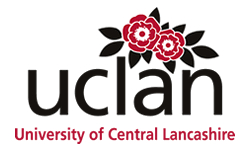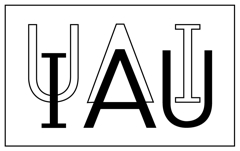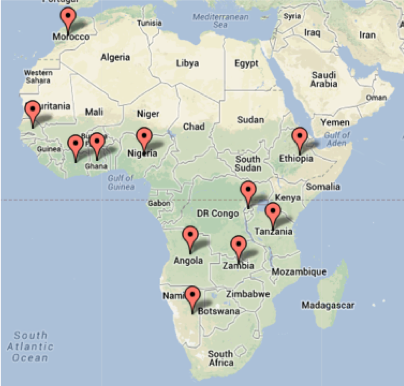Background: The OAD was established in 2011 as a project of the International Astronomical Union (IAU) as part of their decadal strategic plan to use astronomy for global development, with a special focus on Africa. Over several years the University of Central Lancashire (UCLan) has been involved with educational activities in Africa and has a keen interest in the development of the continent. UCLan is also a partner in the Southern African Large Telescope (SALT), one of the largest optical telescopes in the world. Both the OAD and UCLan recognise that astronomy plays an important role as a “gateway science” attracting people to the fields of science, engineering and technology at all levels including university, school and public. One of the great challenges on the African continent in terms of astronomy development is access to good tertiary level education on the subject. This partnership tries to address this challenge through UCLan’s distance learning programme, expertise and the OAD’s networks across Africa.
Areas of Collaboration:
1. Human Capital Development: Astronomy education through distance learning
This area of collaboration revolves around developing the human capital that is necessary for astronomy to thrive across the African continent. It will be achieved through the identification of good potential candidates by the OAD and the awarding of a free distance learning course through UCLan (www.studyastronomy.com).
Important Information about the opportunity: This scholarship refers to just the first module in the University Certificate in Astronomy (Introduction to Astronomy – AA1051). This module is being offered completely free i.e. no tuition or module fee required, and includes all the online help and chatroom meetings etc. All assignments are submitted online so no postage costs need be incurred.
The only cost one may incur is the recommended textbook (details on the course website). This textbook is not necessary for this module but it is desirable, especially if students go on to further modules. The textbook would need to be bought, borrowed or referred to in a library. However, depending on the motivations in the application form, the OAD may choose to award the textbook as well to certain students.
In terms of expanding this project, further courses could be offered to students who get high marks in the first one and depending on the impact that they have in their communities with the knowledge they gain. However, such costs for the expansion of the project would only be sought depending on the success of this round.
Unfortunately the call for applications in 2013 is now closed.
See below the countries that are currently benefiting from this program:
2. Visiting Experts Programme
Based on evaluation of the impact of the distance learning courses, experts from UCLan (researchers, instrumentation scientists or outreach staff) will be invited, where possible, to travel to selected African countries, for a period of up to a few weeks, both to assist with local astronomy development as well as explore collaborations between UCLan and institutions in that region.



